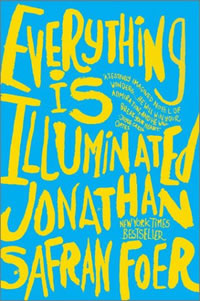
Not all love stories are created equal. You can keep your Disney princesses and your happily ever afters, and I sincerely hope that you enjoy them. But they're just not what I want to read about sometimes. They're not author
Joshua Gaylord's thing either, as evidenced by his new novel
"When We Were Animals." This is not a soft, warm romance; this is a love story about corners and edges and the way your tongue feels when it scrapes across your teeth. I'm not talking about a Christian Gray-type romanticized story of abuse, either. This book is a poetic yet raw look at the brutality of human emotion, particularly of affection, underneath the pretty facades of suburban paradise.
Lumen, the main character and narrator, grew up in a small town with a unique secret: when local youth reach puberty, on the full moon of each month for approximately a year they "go breach." When teens breach they essentially succumb entirely to animal instinct, running wild around town naked and destroying anything they please, fighting, having sex and generally wreaking havoc. Everyone not in the throes of the breach, young and old, remains indoors and tries to ignore the screams and howls from outside, ignores the scratches and bruises on the neighborhood teens the next morning.
When the moon is not full, and during the days, breachers act normally. But going breach is seen within the community as a mark of maturity, and Lumen just doesn't seem to be able to convince her body to take that leap (which I found interesting as a reader, considering the calm, lucid prose with which she expresses herself, and how her behavior as a "good girl" seems much more mature than the breach-drunk antics of her peers). Lumen's lack of breach isn't entirely surprising though, since her mother never breached either. It was unheard-of for someone born and raised in town to avoid the breaching process. But Lumen finds herself in a sort of half-breach, joining her classmates outside on breach nights but retaining her reason and her sense of self. The result is that her narrative becomes half coming-of-age story, told from the perspective of a middle-aged suburban housewife, and half anthropological study of the culture of breaching in the town, as well as how relationships morph within the pack of breachers.
Lumen's unique situation, the in-between space that she occupies, does not go unnoticed by the breachers. Two boys in particular, Peter and Roy, take an interest in her for very specific and different reasons. Peter is a golden boy, every girl's dream, and sees her other-ness as something pure in need of cherishing and protection. She is above the rest of them, he tells her. Roy, on the other hand, perceives her as a physical manifestation of the breach itself, her outward calm and fascination with the breachers just a thin veneer over all the pure ferocity and brutality that defines the condition. And depending on whose company she's in, Lumen takes on to a certain extent the characteristics that each of the boys project onto her. This steers her life in different directions throughout the story but the reader sees Lumen eventually becoming more curious about the shadowed side of her, her ability to explore it without succumbing to it. She also wonders what's wrong with her, why she can never belong to one group or another. While this question is explored frequently and vehemently by her character, it is never answered. That is, in my opinion, the best possible way to handle the situation and author Gaylord did it perfectly.
All through the book, Lumen sees herself as her namesake: a space, an in-between state that both exists and does not, full of nothing but emptiness. She is defined by absence - the absence of her mother, of puberty, of any sense of self aside from what others project onto her. Her father's ideal of her as a "good girl," the influence of her classmates, and later on in life, what her husband expects of her are all things that she adopts like a hermit crab decorating its shell. Her sense of self, and the different definitions of a lumen, are something that Lumen explores throughout the book. The different meanings of a lumen lend significance to the different stages of her personality, of her evolution as an individual.
Lumen narrates the story as a grown woman, married to a nice normal man, a stay-at-home mother living in suburban bliss. She includes anecdotes from her present life not only to contrast it with her upbringing before and during the breach years, but also to illustrate the ways in which she is still unconsciously defined by it. Her seeming lack of empathy , of appreciation for social norms is perceived by those around her (including her husband) as a possible mental illness. But the reader, having heard her story in her own words, appreciates the elegance of Lumen's detached attitude, of her inability to comprehend why the roughened edges of life are things that people want to avoid, to obliterate. She doesn't love her husband or her son any less than the other wives around her; she just has a different perception of what love really is.
"When We Were Animals" by Joshua Gaylord is not a novel to be missed. Whether you're looking for a gripping protagonist, a strange and compelling tale, a bold depiction of humanity in all its animalistic glory, or a story that borders on magical realism in its lyrical prose, this book has it all. Plan on picking up a copy at your favorite local independent bookstore on April 21st. Mark your calendar, especially if like me, you enjoy an author with a singular gift for expressing spaces that are only defined by what goes on around them.






